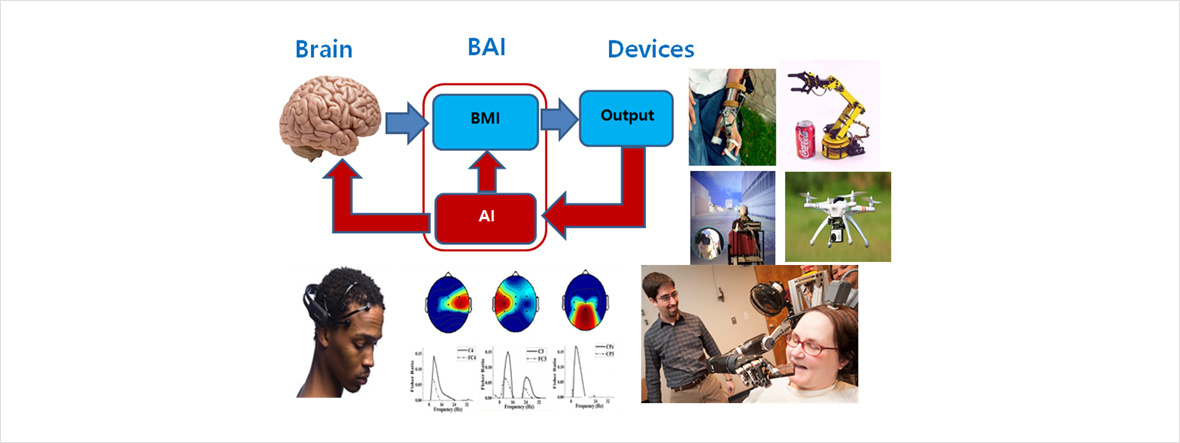
Research Theme
AI emergings cover futuristic topics that would create new breakthroughs by solving problems and limitations of existing AI technologies and or providing new innovative technical issues.
Brain AI Interface (BAI)
A Brain–AI Interface (BAI) is a direct communication pathway between an enhanced or wired brain and an external device. BAIs are often directed at researching, mapping, assisting, augmenting, or repairing human cognitive or sensory-motor functions.
Major research fields include, but not limited to
- Non-invasive BCIs
- Electroencephalography (EEG)-based brain-computer interfaces
- Neurogaming
- Brain to AI (brain science based AI study)
proposing new learning and inference paradigms, based on computational brain function understanding, that current machine learning algorithm cannot explain
- AI to Brain (AI based brain study)
build high level human cognitive control theory by studying learning and inference mechanism central to human decision making process

Smart Chips for Pervasive Intelligence
Most current AI applications and implementations are based on large number of training data, intensive human intervention, large offline training time and expensive computing environment. This is indeed in contrast to biological learning especially human brains which usually requires less data, fast online learning speed and lower computational power. Smart chips and smart hardware can overcome current problems and thus enable us move into the new era of pervasive intelligence. This research aims at investigating smart chips and smart hardware for AI and machine learning.
Major research fields include, but not limited to
- Hardware acceleration techniques (e.g., FPGA and ASIC) for neural and machine learning paradigms
- Neuromorphic implementation
- Learning on chips for regression, classification, feature learning and sparse coding
- Approximated and incremental computing hardware for machine learning
- Smart chips and hardware implementation for auditory systems
- Smart chips and hardware implementation for visual systems

Quantum Machine Learning (QML)
Quantum Machine Learning (QML) is an emerging interdisciplinary research area at the intersection of quantum physics and machine learning. QML algorithms can use the advantages of quantum computation in order to improve classical machine learning methods. On the other hand, we can apply classical machine learning algorithms to analyze quantum systems.
Major research fields include, but not limited to
- Quantum-enhanced machine learning
- Quantum learning theory
- Classical learning applied to quantum systems
- Fully quantum machine learning



